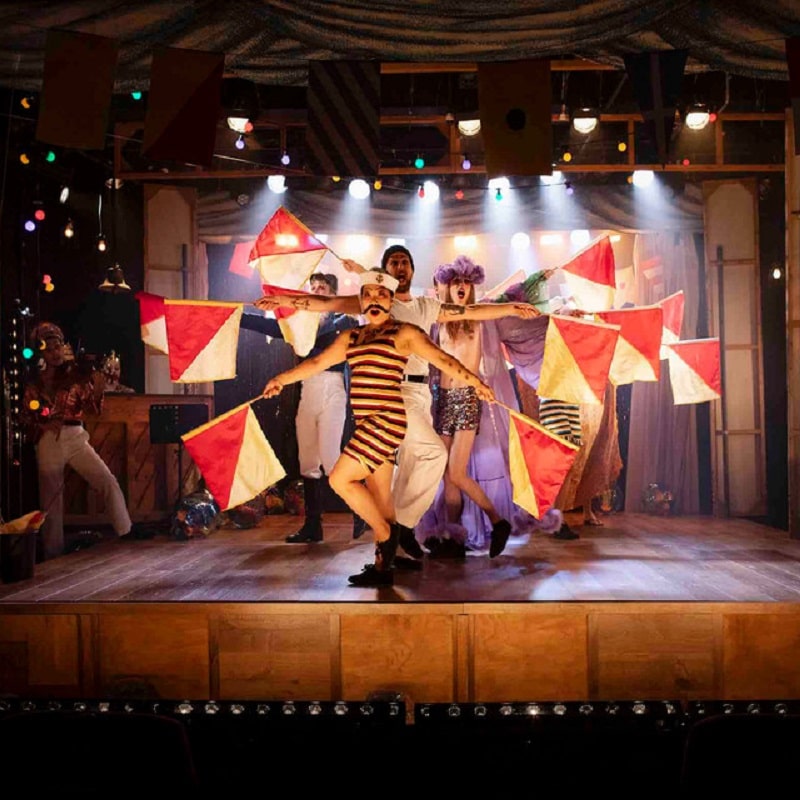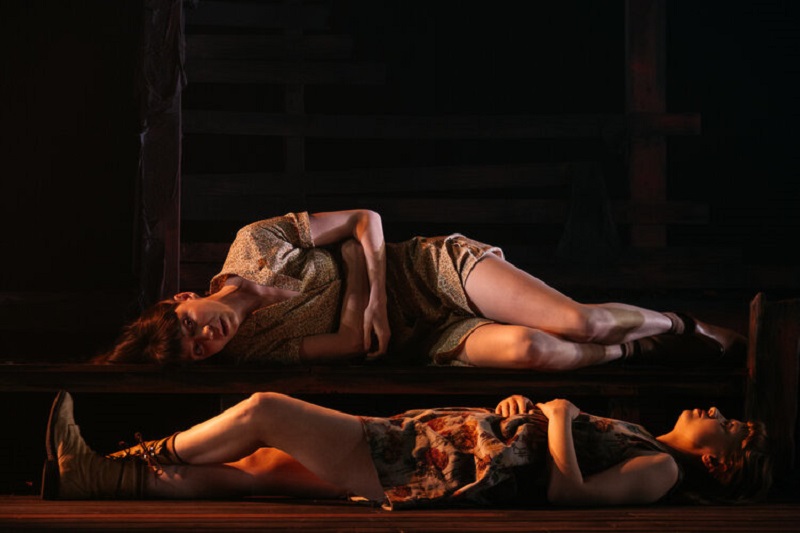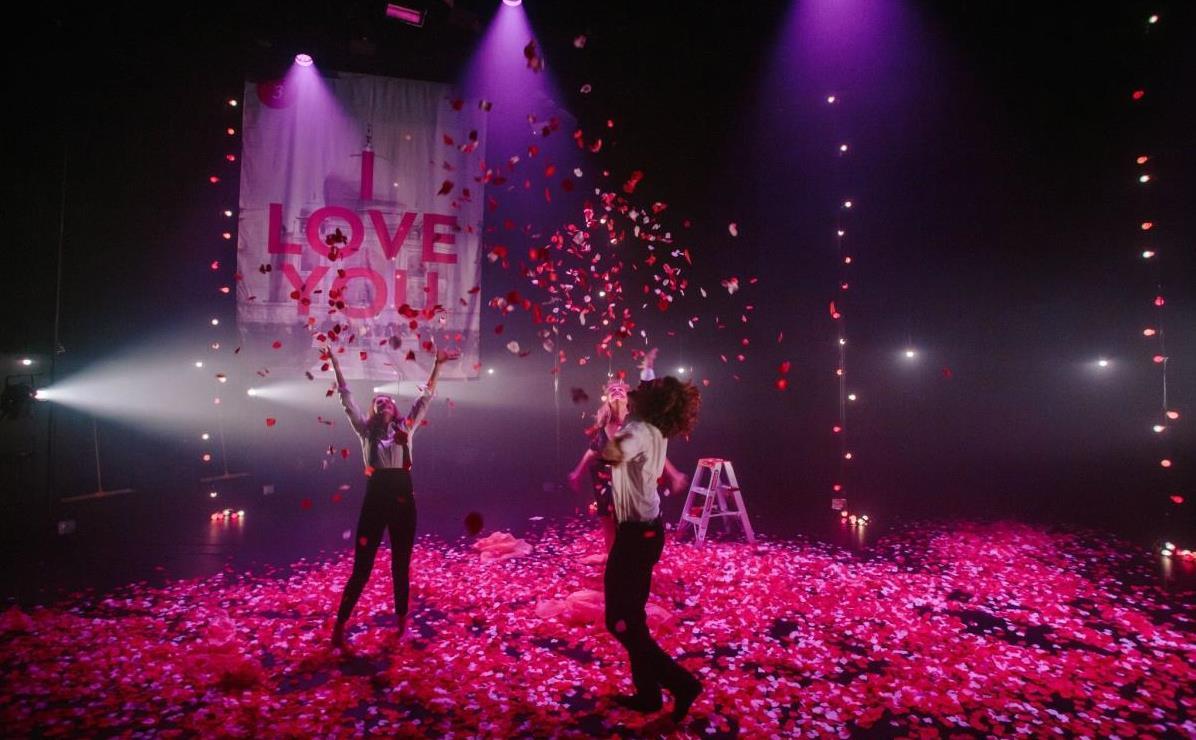Founding a new independent theatre company is demanding in itself. Ensuring it will still be around in a couple of years – established rather than quickly forgotten – is a whole new challenge.
Some companies are intentionally ephemeral, created in order to stage a single project or realise a particular vision, then folding. They have a short, distinct lifespan and wind up once they’ve achieved what their creators set out to do. But for theatre-makers with long-term plans, how do you ensure your company will last the distance?
Read: Buzz builds as The Hive Collective ready their premiere season
Here, several indie Artistic Directors from across the country offer up their thoughts on achieving longevity and ongoing success.
KATE GAUL, ARTISTIC DIRECTOR, SIREN THEATRE CO (NSW)
Maintaining an independent company can be a lonely road. No matter what your first discipline is, you have now become a producer. The work we do as producers is often less visible, and less easily understood than the rest of the team. Even the term producer is open to a number of interpretations.
To survive as an indie company, you need to know what kind of work you want to do and, critically, why you want to do it. If you can’t articulate why you’re passionate, you’ve probably already shot yourself in the foot. If you can’t articulate a perspective both on process and on your program or project, you won’t be able to convince others to join your team and it’s tricky to get into curated programs. I’ve found that my ability to clearly express my artistic vision has helped me earn the confidence, trust, and respect of my colleagues. I make no claim that my vision is radically different from anyone else’s, but I work hard to make it cohesive and persuasive. I’ve grown accustomed to the discomfort of being on the fringes.
At Siren Theatre Co I call myself a ‘creative producer’ (as well as a director and occasional designer). Like any artist, I’m generative. I contemplate questions for myself about my values, and what matters to me; I am not serving an institution’s mission. This is our strength and challenge as independent theatre companies.
On a day-to-day basis, I’m a dreamer, curator, grant writer, agent, budget wrangler, marketing guru, community organiser, accessibility coordinator, hand-holder, butt-kicker, and negotiator. I need the energy and focus to add whatever is needed to get where we need to go. But it doesn’t end there. Filling gaps can only do so much.
Whenever possible, it’s important to create new possibilities rather than compete for existing ones. I think this is how an independent company can survive rather than staying firmly in a niche, familiar corner or aping mainstream practice. Don’t get really good at competing with others. Find inspiration to identify a new funding stream, audience member, or partnership, and garner new collaborators. Be generous: because then there is more opportunity, funding, and audience overall – not more for us, less for you.
I heard this somewhere once and it really stuck with me – in our industry, we’re proud to declare our connections with a theatre, with a service organisation, with a network, with a show, and/or with someone we used to work with. However, the biggest opportunities for growth and survival begin when we stop looking for those we recognise and start looking for those we don’t know who are travelling toward us. These folk are just beyond the comfort zone of those affiliations and networks.
To survive beyond your second show, to grow a practice that not only benefits your crew but everyone around you, sometimes we need to get uncomfortable, and convince someone else to get uncomfortable with us.

Siren Theatre Co’s HMS Pinafore. Photo credit: Phil Erbacher.
COREY MCMAHON, ARTISTIC DIRECTOR, THEATRE REPUBLIC (SA)
Be clear about why you want to start your company. What do you want to achieve? What role do you see the company playing in the local ecology?
I spent a lot of time thinking about what I thought Theatre Republic could be and importantly why I wanted to commit myself to what would undoubtedly be an all-consuming adventure.
It’s not enough to want ‘to start a company and put on plays’. That won’t sustain you. Be clear about what your company can bring to the local ecology. What will audiences get out of the work your company produces, that they aren’t already getting from a similar, already established, company?
Study the local marketplace. Where will your company sit in that marketplace? How will you differentiate your company from other small-to-medium companies?
I did a lot of research into small-medium companies world-wide, looking at the different models that were out there, how they built their programs and engaged with their audiences. Don’t be afraid to pick the best bits that line up with your vision.
I think the other, really important, thing to consider is: do you really want to do this? I always wanted to start my own company and knew that, someday, I would be ready to give it a go. But I was 15 years into my career as a director before I was brave enough to take the plunge. But don’t get caught up in romanticising the idea. It’s hard and all consuming. I live and breathe Theatre Republic.
Be clear about why you want to start your own company and be sure your vision is one you are truly passionate about and that it will sustain you.
Choose the right partner in crime.
You won’t be able to do this alone. Find the right business partner to work with, someone who will be prepared to put in the many long (and often unpaid) hours that are required to keep the company going from project to project. If you see yourself as leading the creative vision of the company, who will be the right person to help you realise that vision? Find someone who shares your passion, who you line up with philosophically and creatively. Importantly don’t find someone who will be a ‘yes’ person. Absolutely find someone who will support you, but also someone who will challenge you and provide alternative ideas and solutions.
Get good advice.
When we decided to start Theatre Republic, we knew there was a lot we didn’t know about running a theatre company. We had many questions that needed answers before even beginning to settle on what the final model would be. With that in mind, we created an advisory committee of experienced and respected arts leaders who provided invaluable advice and support around the formation of the company, its place in the local industry, and what things we should consider before settling on a model that would take the company forward.
Speak to a lot of people. Get their advice. Not all of it will apply to you and how you see the company but you can be sure you will hear something that could be the key to unlocking what you want to do next and how you get there.
Through that advisory committee, we gained access to very good legal and financial advice and support. As a result of this advice an appropriate legal structure was selected for the company, a constitution was drawn up and the fundamentals around how the company would operate in a financial sense also came together. We were fortunate to get this support in-kind from two of Adelaide’s leading financial and legal firms who believed in our idea and wanted to help us get there.
Get proper legal and financial advice. Don’t leave this to chance. I cannot stress this enough. It’s a regulatory minefield out there and if you get your ducks in a row from the get-go you can then focus more of your energies on the thing you are setting up the company to do – make great theatre.

Theatre Republic’s The Bleeding Tree. Photo credit: Thomas McCammon.
Get the right board.
It’s important to gain an understanding about the role of the board in a company. What are their responsibilities? And how can they help you to achieve the absolute best for the company? Learn about governance, your legal responsibilities and how you can work with the board to ensure you meet them.
Importantly, find people who believe in your vision for the company and who are prepared to go on the journey with you. Also be clear about what skillset they can bring to the board. Is it legal? Financial? Are they an expert fundraiser? Do they offer advice in marketing or senior management? Create a skills matrix and look at what areas you need to fill. You need a board that will keep you on track but also one that believes 100% in the company and its potential.
Find a Chair who will work closely with you to maximise your board’s potential. Your Chair is your friend, so choose wisely.
Get ready to make mistakes.
Be prepared to make a few mistakes along the way. We’ve made some doozies! The key thing to remember is that if, like we were, you are an artist looking to cross over into small business management, you’re going to need to build a whole new set of skills. That won’t happen overnight so it is inevitable you will make some mistakes. But most won’t mean it’s the end of the world (or the company!) and most you won’t repeat again in the future.
It’s a long game.
This is true of any career in the arts, but particularly so when you are starting a company from the ground up. We’re about to tick over three years and it’s only now that we’re starting to see it all come together. We’ve seen the company grow with each passing year. We’re developing our audiences, growing our brand and forging new and significant partnerships that will enable us to think ambitiously about the work we want to create and who we want to create it with.
So, don’t be deterred. It will take some time for it to come together. But if you have a strong, well thought-out vision, one that you are absolutely passionate about and that will sustain you through some challenging times, you will get there.
AMY INGRAM & Daniel Evans, THE GOOD ROOM (QLD)
The Good Room is always wrestling around our purpose – why we exist, who we create work for and what makes the theatrical investigation urgent. We exist project-to-project, so it’s important to us that each work offers an opportunity to revisit these points afresh and steer ourselves in a way that keeps what we do relevant, interesting – and enjoyable to do!
Like many indie theatre companies, The Good Room started as a vehicle for us (Dan and Amy) to create our own opportunities as a writer/director and actor. We were reasonably successful at this, and had a great time making good work with good people, but we knew that we hadn’t quite landed on what made us, us. So three years in, we made the choice to move The Good Room away from producing scripted, text-based theatre, to creating (what would become) curated crowd-sourced performance in a more collaborative model. At the time, we felt there were other ways to make work that we wanted to explore and that could potentially engage with audiences in a different way. That was a risk for us, but a risk that paid off, in that we found this untapped well of creative possibility and audience engagement, and a way of working that has since become our calling card.
This adaptation – or pivot if you will – strengthened our individual practises (which we all still maintain) while making the collective more robust and the art-making more rigorous. It also opened the door to us making work with more people. Let it be said, we love playing with others. Each new work can feature between two to six core collaborators; that fresh blood flow keeps us beating and ensures we don’t get stuck in our ways. In recent years, we’ve grown this further, partnering collaboratively with other organisations like Digi Youth Arts, and collaborating with new groups of people (dog owners, nine to 14 year olds) to create new work.

The Good Room’s I Just Came To Say Goodbye. Photo credit: Fen-Lan Chuang.
We’ve always felt that our responsiveness is our superpower. We are small, untethered and light – so we can change, morph, jump on opportunities and adapt: and not in a shambolic way but with pace and precision and authenticity.
Finally – and it’d be remiss not to say this – but Queensland is such a unique place to create art. The artists and work here, and the organisations and comrades who routinely support us (places like Metro Arts, Brisbane Powerhouse, Brisbane Festival, Queensland Theatre, La Boite) are tangled up in the roots of our longevity. Inside each of those hothouses are a parade of people who’ve championed us from the day The Good Room first threw open its doors – not really knowing what was inside. Those same people and places continue to present our work and it’s nice that we can still surprise them with what we’re creating next.
TAKE AWAYS:
- Ask the hard questions – often. Be clear on your remit and why you make the work that you do.
- Adapt, respond, evolve as needed – your success lies in direct correlation with your relationship to change.
- Longevity lies in relationships. Partner wisely. Value what you bring to the table.
MARCEL DORNEY, CO-ARTISTIC DIRECTOR, ELBOW ROOM (VIC)
Elbow Room made our first two shows in 2008; the next year we didn’t make anything new was 2019. But in that time, who ‘we’ are has gone through several big changes.
Our idea of a ‘theatre company’ used to include a permanent home and a core ensemble. We’ve never got close to being able to afford either of them. We wanted them because of the ethos we thought they’d enable; but it turns out that the big not-at-all-a-secret is that your company is your ethos.
What we want out of performance are moments of possibility, of real surprise, that can only emerge from a group that learns to trust one another as we develop the material we’re working on. And this means that it’s a team sport. But teams don’t, and shouldn’t, stay the same; what holds them together, what emerges as continuity over time, is the reason they’re playing.
When it comes down to it, the company isn’t the legal entity that we became in 2016; nor even is it, really, the work that we make. The company is the way that we consider and relate to people; our collaborators, the material we’re handling. If the company persists, if the work thrives, it’s because that’s working. And we’ve found that we can be in partnership with institutions and remain independent, and we can collaborate long-term with an ensemble of phenomenal artists, as long as we stay accountable for why and how we’re going to do it.
Elbow Room’s latest work is the premiere of The Enlightenment of the Siddhartha Gautama Buddha and the Encounter with the Monkey King – Great Sage, Equal of Heaven by Joe Paradise Lui, at Northcote Town Hall Arts Centre 10 – 20 March.





